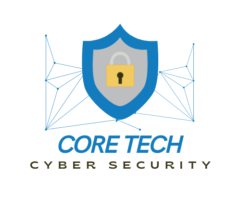In the rapidly evolving field of cybersecurity, certifications play a crucial role in shaping your career. They not only validate your skills and knowledge but also open doors to new opportunities and advancements. Here’s why cybersecurity certifications are essential for your career:
1. Demonstrates Expertise and Credibility
Cybersecurity certifications serve as a testament to your skills and knowledge. They provide proof that you have met rigorous standards set by industry-recognized organizations. This credibility can be crucial for gaining the trust of employers and clients, showcasing that you have the expertise needed to handle complex security challenges.
2. Enhances Job Prospects and Career Advancement
Certifications can significantly boost your job prospects. Many employers require or prefer candidates with specific certifications for cybersecurity roles. They often serve as a baseline qualification for job applications, making them essential for career advancement. Additionally, certifications can lead to higher salaries and promotions, as they demonstrate your commitment to professional growth and your ability to handle advanced responsibilities.
3. Keeps Your Skills Current
The cybersecurity landscape is constantly changing, with new threats and technologies emerging regularly. Certifications often require ongoing education and recertification, ensuring that your skills remain up-to-date. This continuous learning helps you stay ahead of new threats and technologies, making you a more valuable asset to your organization.
4. Provides Specialized Knowledge
Cybersecurity encompasses a wide range of specialties, from ethical hacking to cloud security. Certifications allow you to focus on specific areas of interest or expertise, such as penetration testing (e.g., CEH), cloud security (e.g., CCSP), or security management (e.g., CISM). This specialization can help you become an expert in a particular domain and position yourself for roles that require these advanced skills.
5. Increases Professional Networking Opportunities
Obtaining certifications often involves joining professional organizations and participating in industry events. These opportunities can enhance your professional network, connecting you with other experts in the field, potential mentors, and industry leaders. Networking can lead to new job opportunities, collaborations, and valuable insights into industry trends and best practices.
6. Boosts Confidence and Competence
Certifications require rigorous study and practical application of skills, which can significantly boost your confidence in your abilities. This increased confidence translates into better performance in your current role and prepares you for more challenging responsibilities. As you master new skills and concepts, you become more adept at tackling complex security issues.
7. Aligns with Industry Standards and Best Practices
Many certifications are developed in alignment with industry standards and best practices. By obtaining these credentials, you demonstrate that you adhere to these standards and are familiar with industry-recognized methodologies and frameworks. This alignment is crucial for ensuring that you are following the best practices in cybersecurity and providing effective solutions.
8. Enhances Organizational Value
Organizations benefit from employees with certifications as it enhances their overall security posture. Certified professionals bring proven knowledge and skills that can improve an organization’s ability to protect against and respond to cyber threats. Your certification can directly contribute to your organization’s success by strengthening its security measures and compliance with industry regulations.
9. Facilitates Career Transitions
If you are looking to transition into cybersecurity from another field or shift to a different specialization within cybersecurity, certifications can provide the necessary credentials and demonstrate your commitment to the new role. They can act as a bridge, helping you make a successful transition by showcasing your newly acquired skills and knowledge.
Conclusion
Cybersecurity certifications are more than just credentials—they are essential tools for career development and advancement in the field. They validate your expertise, enhance your job prospects, keep your skills current, and provide specialized knowledge. Additionally, they offer networking opportunities, boost your confidence, align with industry standards, and enhance organizational value. Investing in certifications is a strategic move that can propel your career forward and establish you as a trusted professional in the ever-evolving world of cybersecurity.
